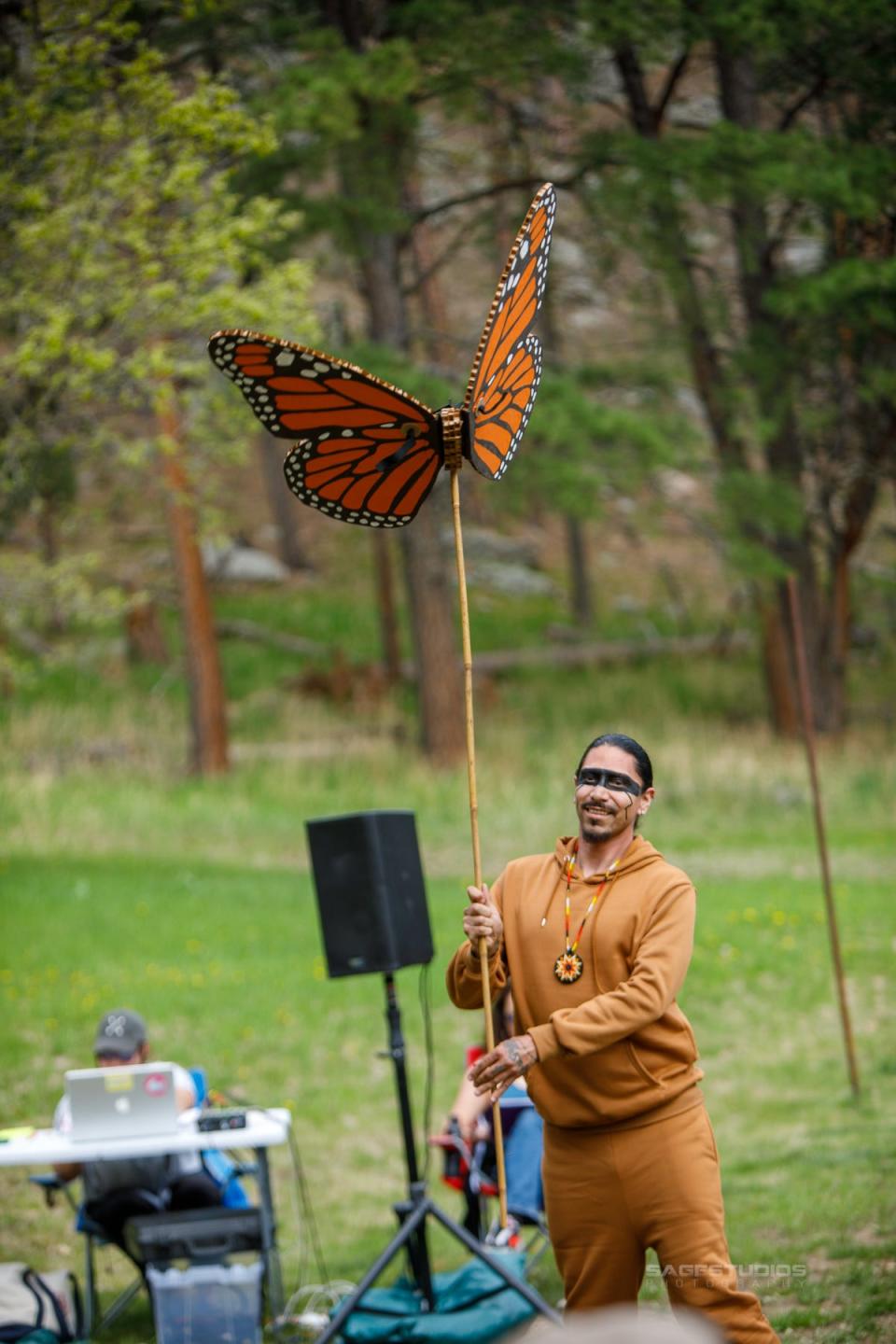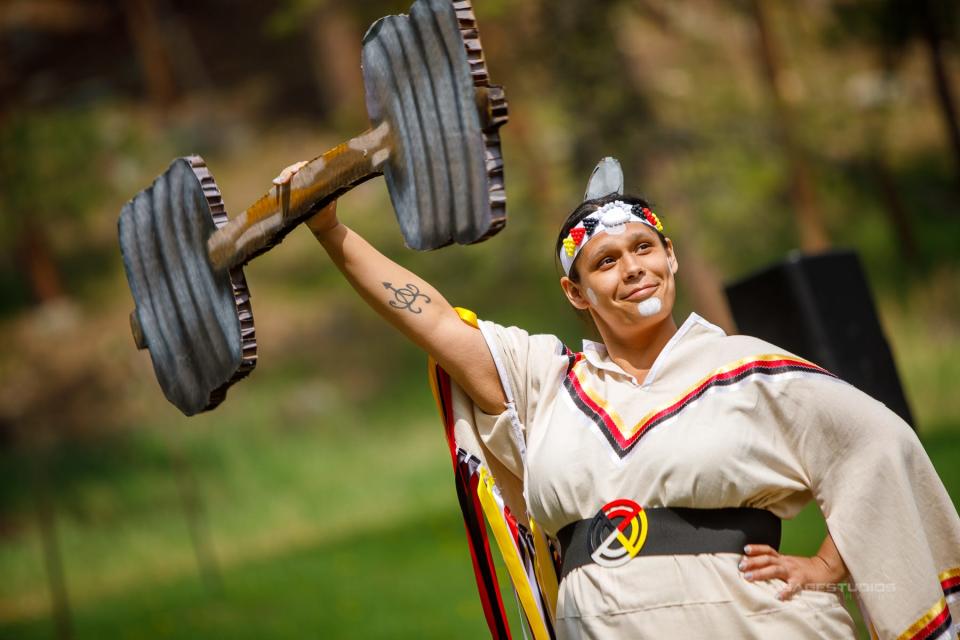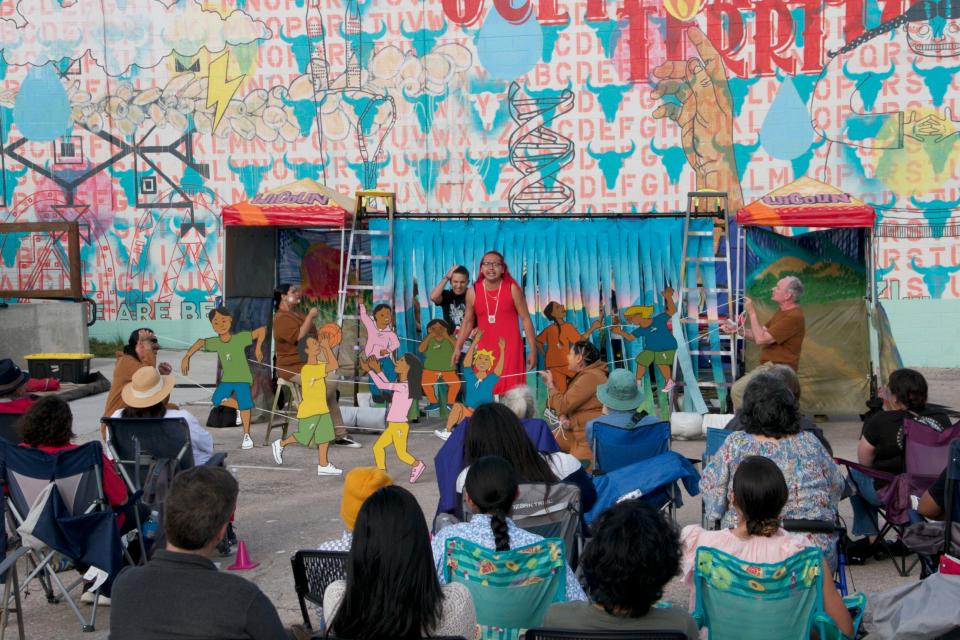Sioux Falls Festival of Cultures to host play written with and about Indigenous people
- Oops!Something went wrong.Please try again later.
Sioux Falls Festival of Cultures will host the play “Wicoun” on Saturday June 10. The play is put on by Cornerstone Theater and was written by Larissa FastHorse, a Broadway-known Native American playwright from Sicangu Lakota Nation and who is a MacArthur "Genius" Fellow.

For the play FastHorse and her work partner Michael John Garcés interviewed the Oceti Sakowin people for a few years to find out how they would like to be represented.
“We created this play together by interviewing hundreds of Lakota/Dakota people over the last five years and asking them what they wanted us to write about to represent them,” FastHorse said.
She said the interviews focused on giving Indigenous people control of the piece through asking them repeatedly "what do you want this play to be about?" Fasthorse and Garcés wanted to make sure the play represents the Indigenous population and what they want people to know about them.
More: Whittier Middle School students sew their own ribbon skirts during Oceti Sakowin class
The team interviewed tribal members of the Sicangu Lakota Nation (Rosebud), Oglala Lakota Nation (Pine Ridge), and other reservations, as well as Indigenous people in Rapid City, and a wide range of cultural centers, according to Cornerstone.
The play incorporates contemporary and traditional themes and values
FastHorse said what really stood out from all the interviews were the stories of strength, resilience, hope, and power of Lakota people. A reoccurring theme was superheroes.
“We were like, okay, great, let’s write a story about Lakota superheroes,” she said.

The creators combined the traditional Lakota ideas of strength with the contemporary notion of superheroes and created a story that represents both, FastHorse said. This blend of old and new is also very characteristic of Lakota people.
The heroes created for the play personify the four cardinal virtues of Indigenous culture, which are bravery, perseverance, generosity, and wisdom. Each of these virtues can only be translated remotely to English, FastHorse said.
The semantic fields of the initial concept of bravery, for instance, differ in English and the Lakota native language, she continued. For the Indigenous population of South Dakota, bravery also includes being humble, being of service, and dealing with conflicts without harm.
More: Vanessa Collier, award-winning Blues musician, opens Levitt at the Falls 2023 concert series
“Lakota virtues are very deep concepts,” FastHorse said. “Broadening the definition of these words in this way is really fantastic for anyone to come and learn.”
Along with the traditional worldview, the Lakota language is also creatively woven in the story so that the non-Lakota speakers could hear it and appreciate its beauty, but also understand the play, be it through comic-book type bubbles or a puppet show, FastHorse said.
Although the work on the Oceti Sakowin tribes is not the first where FastHorse explores Indigenous cultures, and her previous works included plays on the Arizona and California Indigenous population, she calls “Wicoun” the most meaningful in her career.

FastHorse said that growing up as a Lakota woman, she believed that she had to leave her native land to become a professional performing artist, and “Wicoun” gave her a chance to bring her talents back to her own people weaving their stories into the fabric of modern life.
“We are showing my people as contemporary artists while still using our language and traditional concepts,” FastHorse said.
She said that the main characters of the play are contemporary Lakota teens that live on a reservation and raise children by themselves. Young people being responsible for raising the children because no one else was there, FastHorse said, was the situation she came across in many of her interviews.
More: Sioux Falls' 26th annual Festival of Cultures planned for next month
She said that although the play involves a very contemporary situation of what is going on in the lives of the modern Indigenous teens, it also develops the ideas of the traditional Lakota virtues from the past and of how modern people can apply those to their own lives.
The feedback on "Wicoun" from both native and non-native audiences has been positive so far, FastHorse said.
In line with giving back to Indigenous population, “Wicoun” cast features six Indigenous actors, as well as Oceti Sakowin artists, including storyteller, scholar and translator Jerome Kills Small; sound designer Talon Bazille Ducheneaux; designer Tosa Two Heart; and Lakota recording artist Tiana Spotted Thunder, according to Cornerstone.
Where can you see 'Wicoun'?
"Wicoun" is performed in the communities that made it possible, including Crow Creek, Custer, Eagle Butte, Fort Thompson, and others.
Sioux Falls will welcome the play on Saturday, June 10 at 1 p.m. at the Coliseum, located at 515 North Main Avenue.
The play is family friendly, which also serves as a reminder of the fact that the Dakota Indigenous people live in multigenerational families. The creators of the play hope that the play will help improve the situation where the Lakota people are “shockingly invisible,” as FastHorse noted, in their own native land.
This article originally appeared on Sioux Falls Argus Leader: Sioux Falls Festival of Cultures hosts play about Lakota ‘superheroes’

